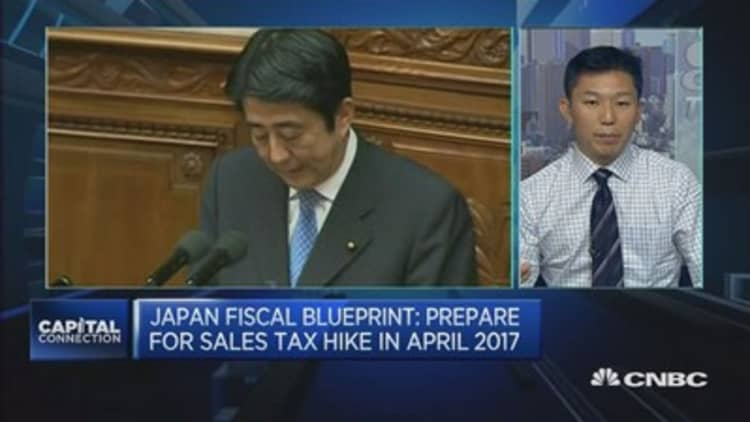Japanese companies including Sharp, Sony and Nissan may be in for a rough ride this week as investors emboldened by new governance rules seek to punish executives for low profitability and inadequate accountability from outside directors.
The annual meetings season will hit a peak on Friday with 41 per cent of Japanese groups with a March fiscal year-end holding their AGMs. The concentration — a notorious feature of Japan's rubber-stamp meetings — is slightly higher than last year, but a major step forward from the 96 per cent recorded two decades ago.
To prepare for this year's proxy season, small and big companies alike have compiled lengthy Q&A cheat sheets to address tougher-than-usual shareholders and are scrambling to meet the new comply-or-explain rule requiring the appointment of at least two independent directors.
Some companies have even turned to a list of about 300 female candidates for outside directors compiled by lawyers on the orders from the Japanese government. Groups have traditionally filled their boards with Japanese males who have spent their entire career at a single company.

The result has been impressive. More than 90 per cent of companies listed on the Tokyo Stock Exchange's first section have appointed external directors, up from 74 per cent last year. The ratio of TSE companies that have appointed at least two outside directors has also more than doubled from a year earlier to 47 per cent, according to the Japan Exchange Group.
Yet one fallout from Prime Minister Shinzo Abe's push for the June 1 implementation of the corporate governance code has been the lack of time for companies to secure outside directors from Japan's already small pool of talent. Some outside directors already serve on multiple boards, as in the case of Haruhiko Kato, a former finance ministry bureaucrat who serves on the boards of Toyota and Canon.
"It's easy for companies to pretend that they are complying with the corporate governance code," a senior official at the Financial Services Agency says. "But you have to give them until next year for a real improvement in compliance."
Read MoreSoon, the BOJ will tell you what it's thinking
Sumitomo Realty & Development, a property developer, has nominated two outside directors for its AGM on Friday, but both are officials from companies in the same Sumitomo group. The company says it is difficult to find the right candidates with the time pressure, but it believes the nominees meet the definition for "independence".
Nissan, which has an alliance with France's Renault, is sticking with the appointment of one outside director this year, who is a Renault executive. The company says the director is "independent" since Nissan and Renault are two separate companies. It also notes that the governance code has leeway until the end of this year to name two independent directors."We have seen the appointments of additional independent non-executives but for a lot of them, I cannot really assess how independent they are," says Arnout Van Rijn, chief invest officer of Asia Pacific at Robeco Hong Kong.
The new code's effectiveness will be put to a further test as companies such as lossmaking Sharp and Toshiba, which is investigating accounting irregularities, meet investors this week.
US proxy adviser Institutional Shareholder Services is recommending a vote against the election of the chief executives at Sony and Sharp after they failed to keep a return-on-equity of at least 5 per cent over the past five years. Sony posted an average ROE of negative 7.7 per cent and Sharp recorded an average ROE of negative 75.8 per cent. Both companies are holding their AGMs on Tuesday.
More from The Financial Times:
Greek concessions keep hopes of bailout deal alive
Painful reality — creditors will support Greece in any case
Greek public stops paying off personal debts as uncertainty grows
For managers undershooting ROE targets or failing to bring outside voice to their boards, pressure may come from an unlikely source: an increasingly vocal group of mom-and-pop investors, who had often backed the management in the past.
Daiichikoshyo, which makes and sells karaoke machines, came under fire during last week's AGM as individual investors questioned the management over the selection of two outside directors — a former baseball player and a former musical actress. While the proposal passed in the end, executives were called to explain whether the two individuals would be able to properly assess acquisition and other major business decisions.
"In the past, it was just whether the proposal passed or not, but the AGM is no longer the finishing line. Discussions with investors will continue and that's where we expect changes to occur," says Toshiaki Oguchi, a representative director at the Japanese unit of UK-based investment group Governance for owners.

